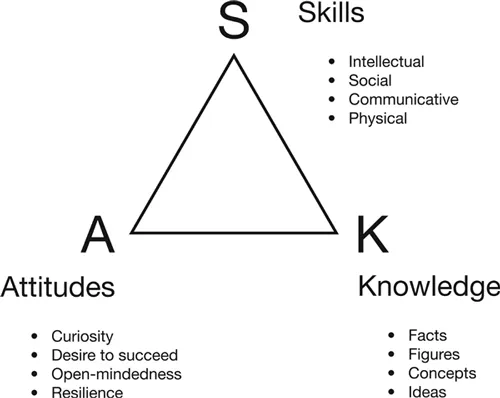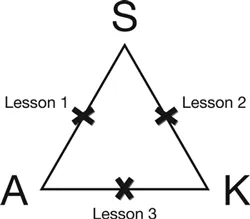
- 132 pages
- English
- ePUB (mobile friendly)
- Available on iOS & Android
About this book
'I recommend this book to anyone wishing to help children learn. In it you will find some lovely ideas for improving the way we encourage, support and praise all young people.'
Professor Carol Dweck, author of Mindset, Stanford University, USA
'James has developed a rare skill for blending arresting anecdotes, hard-edged research and practical advice into a truly compelling narrative.'
Professor Barry Hymer, author of the Gifted and Talented Pocket Book, Cumbria University, UK
Over the last 20 years James Nottingham has studied how children learn. He has taught every age group in both primary and secondary schools, helped deaf teenagers deal with anger and isolation and even done philosophy with three-year-olds.
In this inspiring, humorous, and practical book he shows what you can do to help children of all ages develop into confident, thoughtful and independent learners. Based around the acronym ASK, this book explores attitudes, skills and knowledge to learning – what is required and how to develop these skills more effectively. It shows how to encourage independent thinking and a spirit of inquiry in your children.
Highlights include:
- the dangers of calling our children clever, bright and gifted;
- the best ways to teach wisdom;
- how to help children excel in exams;
- why curiosity did not kill the cat.
With a foreword written by John Hattie, Encouraging Learning draws on research from some of the most respected experts on thinking and learning to identify the best ways to help children learn more effectively, efficiently and co-operatively.
For everyone living or working with children – particularly teachers, parents, carers and youth workers - this book shows you some of the best ways to enhance children's learning, including how to question, praise, and encourage more effectively.
Tools to learn more effectively

Saving Books

Keyword Search

Annotating Text

Listen to it instead
Information
- Attitudes – positive attitudes towards learning, including curiosity and persistence.
- Skills – abilities to carry out those actions necessary for gaining understanding and achieving excellent performance in any given context.
- Knowledge – familiarity with information, concepts, theories and practices in a given field.



- Talk about the attitudes that have helped you succeed and those that have led to problems.
- When watching a sporting event together (even if that’s Strictly), draw attention to the competitors’ desire to win, to take risks, and to focus on the outcome. You can also talk together about the attitudes the performers must have drawn upon to attain their high degree of proficiency.
- Identify the actions people can take to demonstrate particular attitudes – for example, having one more try when you feel like giving up would demonstrate determination.
- Talk about the progress your children have made in developing their skills – for example, how much they have improved in bike riding, writing, playing the guitar and so on.
S
K
- curious;
- focussed on what is relevant;
- full of wonder;
- keen to learn from mistakes;
- open to new experiences;
- persistent;
- resilient;
- risk takers;
- self-regulating;
- willing to ask for support and coaching.
Table of contents
- Cover
- Half Title
- Title Page
- Copyright Page
- Dedication
- Table of Contents
- Foreword
- 1. Learning how to learn
- 2. How talented are your children?
- 3. Don’t call them gifted!
- 4. Learning to think for themselves
- 5. Helping children to be wise
- 6. Boost your children’s self-esteem
- 7. Curiosity did not kill the cat
- Notes
Frequently asked questions
- Essential is ideal for learners and professionals who enjoy exploring a wide range of subjects. Access the Essential Library with 800,000+ trusted titles and best-sellers across business, personal growth, and the humanities. Includes unlimited reading time and Standard Read Aloud voice.
- Complete: Perfect for advanced learners and researchers needing full, unrestricted access. Unlock 1.4M+ books across hundreds of subjects, including academic and specialized titles. The Complete Plan also includes advanced features like Premium Read Aloud and Research Assistant.
Please note we cannot support devices running on iOS 13 and Android 7 or earlier. Learn more about using the app